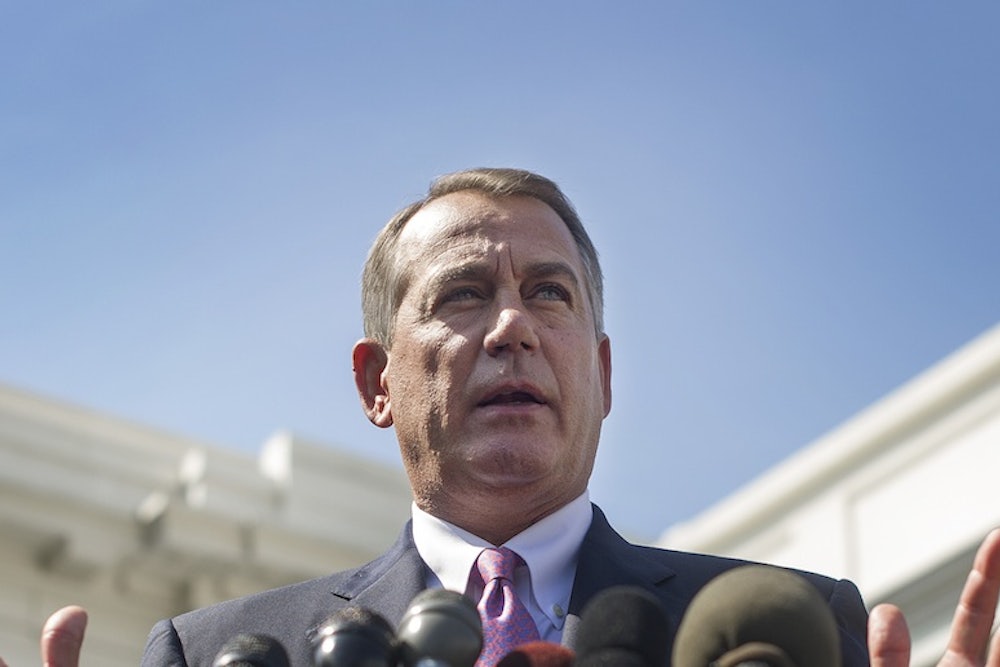Philip Klein of the Washington Examiner thinks a government shutdown, although possible, remains unlikely:
...there’s still reason to believe that ... lawmakers will come to some sort of agreement to keep government funded.
The nation now has more than two and a half years of experience with divided government during the Obama presidency. And each time there has been a major crisis, it’s followed a familiar pattern.
The sides are far apart. It looks like the crisis may hit. Then, at the last minute, there’s some sort of deal that’s able to pass the Senate that Speaker John Boehner, R-Ohio, is able to get through the House of Representatives with a lot of help from Democrats.
Klein is one of my favorite conservative writers. Most informed observers I know would agree with his assessment and, for the record, I would too. The conflict over financing government operations—and, weeks from now, raising the debt ceiling—is all about Boehner and his lieutenants waiting until the last possible minute, so that he can extract the biggest concessions from Democrats while telling the conservative base he did the best he could. One way or another, the two sides will come together before the government runs out of money and before it taps out its borrowing authority. In fact, with Senate Minority Leader Mitch McConnell announcing that he won't support Senator Ted Cruz's call for a filibuster, the chances of a shutdown just diminished a little more.
But if the chances of either a shutdown or a debt ceiling crisis are modest, they aren't modest enough. And there’s a chance the confidence all of us feel could actually make a last-minute deal less likely.
One reason is that Boehner’s conservative base knows the history as well as the rest of us. Those past deals—the ones that make everybody in Washington so confident—are one reason they don’t trust him. Even though Boehner has obtained concessions in previous confrontations with the Democrats, many conservatives think he didn’t get enough. And this time the fight isn’t simply about how much to cut spending or which tax breaks to extend—issues about which it's pretty easy to strike a bargain. It’s about whether Obamacare will take full effect—an all-or-nothing proposition that, as Jonathan Chait has written, is now the far right’s central, animating cause.
Another danger is that the business community, in particular, remains nonchalant. Corporate leaders are one of the few groups with significant sway over Republican leadership; if CEOs and their surrogates apply a lot of pressure on Boehner, he’s much more likely to make a deal, even if it means (as Klein suggests) passing something with substantial Democratic votes. But so far business leaders haven’t said much publicly about either the shutdown or debt ceiling—and they don’t appear to be saying that much privately, either. I don’t know why they’re so quiet, but I suspect many are operating under the same assumption—that, one way or another, Boehner will find a way to make a deal. Obama late last week appealed directly to this group, in a speech to the Business Roundtable. But it’s not clear whether it had any effect.
Keep in mind that while a shutdown would interrupt government services, merely approaching the debt ceiling, let alone hitting it, could have more serious and far-reaching economic repercussions. And while it’s possible markets will treat the prospect of default less seriously this time, precisely because Boehner made deals in the past, there’s no way to know at what point markets will suddenly decide the threat is real—or at what point business and consumer confidence will start to fall.
Jonathan Cohn is a senior editor at The New Republic. Follow him on Twitter @CitizenCohn
